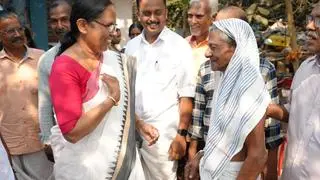Travel enthusiasts and tour operators might not have given much thought to safe, clean and hygiene destinations during the planning phase in the pre-Covid days. But this might not hold good going forward, as the pandemic has shaken travellers and tour operators alike.
The current pandemic could be an opportune time to rethink a roadmap for building a clean, safe and environment-friendly ecosystem, say leading travel and tourism associations.
Related Stories
Podcast | Startup and You: Episode 4 - Understanding co-living spaces with Oyo India's Ankit Gupta
Industry insiders aver that tourism would play a pivotal role in getting the economy back on track, once India starts recovering from the pandemic.
The industry’s contribution to India’s GDP in 2019 stood at 9.3 per cent, and is said to account for over 8 per cent of the total employment.
Leading travel and tourism associations have, ahead of the World Tourism Day on September 27 joined hands to appeal to the government to strengthen the packaging waste collection and recycling ecosystem.
The government’s Swacch Survekshan (cleanliness survey) has projected many tourist hotspots such as Amritsar, Jaipur, Mumbai, Delhi, Srinagar, Varanasi and Shillong in poor light. Almost half of the world’s 50 most-polluted cities are in India.
Industry insiders feel that this would have an adverse impact on the tourism industry in India.
Waste woes
“Strengthening the waste collection system and educating common citizens about the importance of responsible disposal of various types of plastics would ensure less waste littered at tourist hotspots and other Indian cities,” Pronab Sarkar, President, Indian Association of Tour Operators. “Currently, plastics like multilayered packaging (chips/biscuits) and tetra packs rarely get collected due to their low value in the recycling ecosystem; other plastics like PET/HDPE bottles are mostly recycled, not just in India, but globally as well. Ragpickers are paid ₹25-30 a kilogram.”
Pollution with respect to tourism encompasses air emissions, noise, solid waste and littering, releases of sewage, and chemicals, even architectural/visual pollution. Most of these are easily avoidable. Better planning in terms of plastic waste disposal, collection and recycling mechanism would ensure good health and well-being, which in turn would help revive the industry’s growth, he said.
Nilesh Shah, President, Travel and Tourism Association of Goa, said cleanliness will be the key to stimulate the industry in India. “The habit of littering, ineffective waste management and the pandemic have led to widespread pollution. The need of the hour is to educate the masses about correct disposal and recycling of waste, particularly in tourist hotspots like beaches, hill-station and pilgrimage locations.”
Subhash Goyal, Honorary Secretary, Federation of Associations of Indian Tourism and Hospitality (FAITH), stressed the need for regular cleanliness and health audits to ensure infrastructure and environment pristine. “Only a collective contribution would help usher a new era of Incredible India.”







Comments
Comments have to be in English, and in full sentences. They cannot be abusive or personal. Please abide by our community guidelines for posting your comments.
We have migrated to a new commenting platform. If you are already a registered user of TheHindu Businessline and logged in, you may continue to engage with our articles. If you do not have an account please register and login to post comments. Users can access their older comments by logging into their accounts on Vuukle.